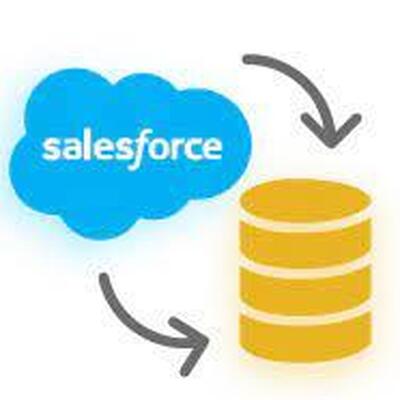A Comprehensive Guide to Salesforce Data Backup and Recovery Options
الجسم
In many businesses, Salesforce plays a crucial role. As a result, having reliable recovery and backup systems in place is essential to safeguarding the platform's data resources. If you use Salesforce, you should know that you're responsible for the safety of your customers' and partners' information and your own. Naturally, Salesforce also provides a variety of data recovery and backup solutions to help customers restore lost data or restore it to its previous state and value. This article offers a Salesforce data recovery and backup tutorial to help users better manage their information.
Backup and Recovery: What's the Difference?
Although these two concepts share many similarities, they each have unique needs and practical considerations. A "backup" is a copy of your data that you keep in a safe location. In the event of infrastructure or service disruptions, you can retrieve your data with this. Many methods exist for creating backups, including copying data on the cloud and storing it offsite.

The term "Recovery," on the other hand, refers to the collection of resources (software, policies, and processes) that can be used to restore lost information. If you accidentally erase or lose your CRM data, Salesforce data protection is your saviour.
Which data needs to be backed up?
Several factors can cause data loss, such as infrastructure failures, human mistakes, and blackouts. Whether you classify the data as minor or major is still a risk to your company's business and legal standing.
Finding out which parts of your Salesforce account are the most important and, thus, the ones you should back up is a must. Cases, contacts, leads, contracts, and opportunities are some primary data categories the backup for salesforce services can protect. Files, custom object records, and other data types should also be backed up. Most businesses should back up metadata, fields, page layouts, and other organization-specific customizations.
There are restrictions with Salesforce's native backup and recovery features.
Salesforce's backup and recovery capabilities can take time to grasp at first. Because of its shaky procedure and expensive fees, it can't replicate your entire database. This is why Salesforce suggests its users employ an external backup service. Relying on built-in features like a recycle bin restore or weekly export can be a pain and a waste of time, with no assurance that all of your data will be recovered.

There are several ways in which automated daily backups provided by a third party can improve your situation -
- Make available solutions that can help users circumvent Salesforce data backup and recovery restrictions
- Automatic daily backups allow you to maintain a daily awareness of all the data in Salesforce.
- The automated data backup system will require less time and effort than the Weekly Export system and will also take less time. The data is vulnerable because your weekly Salesforce exports are not secure.
- The third-party cloud-to-cloud daily backup solution is less expensive than other options because it offers limitless capacity.
Conclusion
Data stored on Salesforce is crucial to any business, yet it risks being lost anytime. It's up to you to learn about this and take precautions against data loss. Instead of waiting for a disaster or other calamity, it is better to take precautions now, just in case.














تعليقات